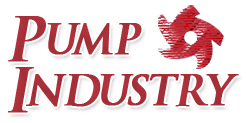During his address, Michlik emphasised the importance of the pump sector in Europe’s overall energy-saving efforts and outlined how the Extended Product Approach has led to significant reductions in energy consumption across various industries. He noted that pumps, which account for a substantial portion of energy use in industrial applications, offer enormous potential for efficiency gains when viewed holistically as part of a broader system rather than in isolation.
“The Extended Product Approach has revolutionised how we view and optimise energy efficiency within the pump sector,” said Luboš Michlik. “Rather than focusing solely on individual pump performance, we now evaluate the entire system, including motors, drives, and control systems. This holistic view allows us to achieve far greater energy savings and system efficiency.”
The EPA methodology, developed and championed by Europump, shifts the focus from individual pump components to the performance of the entire pumping system. By assessing how all elements – pumps, motors, drives, and controls – interact, the EPA enables more precise and impactful energy-saving opportunities. This shift in approach has already led to significant improvements across Europe, helping companies reduce operational costs while contributing to the EU’s energy and sustainability goals.
Since 2016, these endeavours have resulted in the saving of 226 million MWh of electricity and a reduction of 158 million tons of CO2 emissions. Additionally, the incorporation of the Extended Product Approach into the upcoming revision of EU Regulation 547/2012 for water pumps could unlock a further 35 TWh in energy savings.
As part of his presentation, Michlik highlighted several key achievements of the European pump sector under the Extended Product Approach:
Substantial Energy Savings: Through the adoption of EPA, industries have been able to reduce the energy consumption of pumping systems by as much as 20-30%, resulting in significant cost savings and a smaller environmental footprint.
Compliance with EU Regulations: The pump sector’s commitment to energy efficiency has aligned it closely with the EU’s Ecodesign Directive, w
hich sets strict requirements for energy-using products. The Extended Product Approach has positioned the industry at the forefront of regulatory compliance, demonstrating how proactive efforts can lead to both economic and environmental benefits.
Innovation and Sustainability: The focus on the complete system has driven innovation across the pump sector, fostering the development of more energy-efficient technologies and smart systems that enhance operational efficiency while reducing energy demand.
Michlik also pointed out that the EPA model serves as a blueprint for other energy-intensive industries looking to make strides in energy efficiency. The holistic approach has been embraced by many across the sector and has become a key element in the EU’s broader strategy to reduce energy consumption and mitigate climate change.
“The success we’ve seen in the pump sector is only the beginning,” Michlik added. “Our work shows that by taking a systems-based approach, we can unlock much greater potential for energy efficiency in other sectors as well. This is not only good for businesses but for the environment and society as a whole. All we are waiting for now is official confirmation from the EU that the Extended Product Approach will be integrated into future ESPR / Ecodesign legislation, ensuring that even greater efficiency gains can be realised across Europe and beyond.”
The EEMODS conference, a premier global forum for discussing energy efficiency in motor-driven systems, provided the ideal platform for Europump to showcase the accomplishments of the European pump sector. The conference gathers policymakers, industry leaders, researchers, and technical experts to exchange knowledge and promote strategies that enhance energy efficiency.
Europump, which represents the European pump manufacturing industry, continues to lead the charge in energy-saving initiatives through its advocacy, education, and technical innovation. Its efforts to promote the Extended Product Approach have been central to the success of the sector, and the organisation remains committed to further advancing energy efficiency across Europe and beyond.



